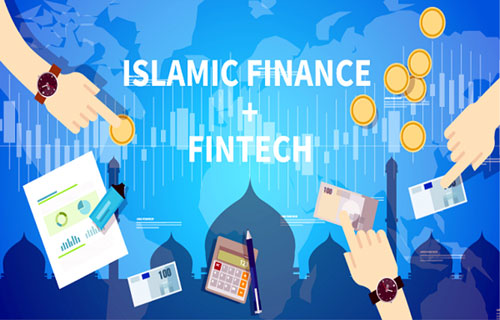With our planet being home to almost two billion Muslims and Islam being one of the world’s fastest-growing religions, it should come as no surprise that Islamic finance has become a powerhouse sector in recent years.
Indeed, at more than $2.7 trillion in assets, one recent estimate put the Islamic-finance market at 6 percent of the world’s total. And yet fintech (financial technology) solutions within this sector continue to lag in funding and innovation. As such, the next few years could see a multitude of opportunities for disruption dramatically transform the Islamic-finance space.
Deloitte’s June 2020 Middle East-focused fintech study gathered input from 1,500 banking customers and more than 50 digital leaders from Saudi Arabia (KSA), the United Arab Emirates (UAE), Qatar, Kuwait, Bahrain, Oman, Egypt, Lebanon and Jordan. The study found limited alignment between customer expectations and bank offerings and that the region’s fintech ecosystem was characterized by some degree of contradiction and dichotomy.
Although customer behaviour across the Middle East, especially in KSA, showed a clear willingness to adopt innovative solutions offered by banks, such as peer-to-peer money transfers, account aggregation and automated investment advice, Deloitte found that banks were not leveraging the full suite of fintech solutions to address customers’ needs and requirements to enhance daily banking journeys and experiences.
While 82 percent of Middle East banking customers surveyed were willing to start using fintech solutions, only 22 percent of Middle East banking customers were actually using fintech solutions, thus implying the emergence of a significant gap.
Given the high concentration of followers of the Islamic faith within this region, it would be reasonable to assume that there is a significant opportunity for growth in Islamic-fintech solutions, as Muslims seek to access convenient digital solutions that follow the principles of Shariah finance.
Much of the recent research into this subject seems to concur with this outlook, moreover. The “Global Islamic Fintech Report 2021” published by advisory firm DinarStandard (DS) and digital structured-finance firm Elipses found that the Islamic-fintech transaction volume for 2020 within the 57 member countries of the Organization of Islamic Cooperation (OIC) was just $49 billion, or 0.7 percent of global fintech transaction volume. That said, the report also found that Islamic fintechs were projected to grow to $128 billion by 2025 at a compound annual growth rate (CAGR) of 21 percent, which is higher than the 15 percent CAGR expected for the conventional fintech market over the same period. Again, this shows the widespread recognition of both the underdevelopment of Islamic-fintech solutions thus far as well as the tremendous opportunities for rapid growth presented by such a shortfall.
The report, which identified 241 Islamic-fintech companies globally, found that the top five OIC fintech markets by transaction volume for Islamic fintech were Saudi Arabia, the UAE, Malaysia, Turkey and Kuwait, thus indicating a strong dominance by MENAT (Middle East, North Africa and Turkey) region countries. Collectively, those five markets accounted for a hefty 75 percent of the OIC’s Islamic-fintech market size, which, in turn, means that there are clear regions of underdevelopment within the sector at this stage.
“Facilitating automated Shariah-compliant products is an ambitious endeavor that can bring financial stability and financial inclusion to the segments of the populace that is financially deprived,” according to Alif Bank’s co-founders, Abdullo Kurbanov and Zuhursho Rahmatulloev, and chairman, Khofiz Shakhidi, who jointly wrote a piece for the Financial Times in December 2021.
“With Islamic fintech enhancing awareness and accessibility of Sharia-compliant products for consumers, investors and businesses, Islamic finance is poised for years of significant consolidation and expansion.”
Malaysia represents one of the brightest hopes for Islamic fintech to thrive over the coming years, along with the wider Islamic financial market as a whole. Indeed, thanks in no small part to its developed Islamic-finance market, the Southeast Asian country ranked first among 81 countries in the Global Islamic Economy Indicator (GIEI) for the ninth straight year. The indicator, published in DinarStandard’s annual “State of the Global Islamic Economy Report”, compares economies worldwide in their efforts to support the global Islamic economy.
And recent comments from Sharifatul Hanizah Said Ali underline the country’s commitment to fintech development at all levels. The Malaysian Securities Commission’s (SC’s) Islamic capital market development executive director acknowledged the pivotal role fintech will play in enabling the introduction of innovative solutions to support the halal economy, socially responsible investing (SRI) and Islamic social finance to grow the Malaysian Islamic Capital Market (ICM) further. —IQNA










